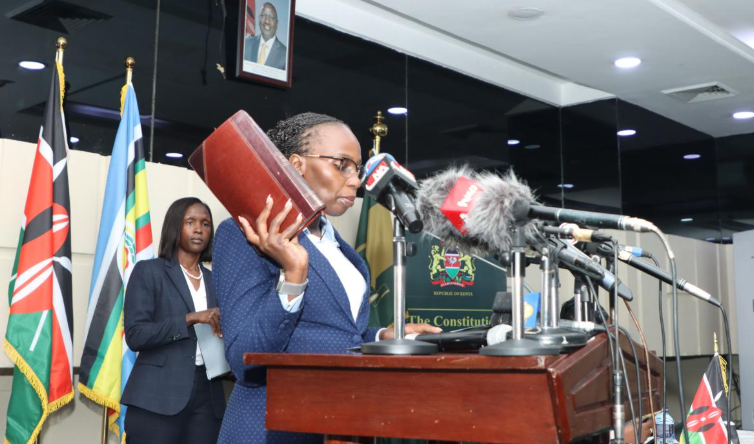When Law Society of Kenya (LSK) President Faith Odhiambo accepted President William Ruto’s appointment as vice-chair of a panel to oversee compensation for protest victims, she presented it as an opportunity to fight for justice from within.
She pledged that her involvement would not compromise her independence, saying the panel could “spearhead a revolutionary shift in victim reparations.” For her, participation is a chance to amplify victims’ voices rather than critique from the sidelines.
But her decision has ignited sharp debate. The LSK is not just a professional body; it is a historic watchdog that has defended Kenyans against state overreach from police brutality to unlawful detentions. Its credibility rests on independence from government influence. Critics argue that Odhiambo’s new role blurs that line, creating a conflict of interest.
Lawyers, activists, and sections of the public fear that by serving in a state-constituted position, Odhiambo risks undermining the society’s ability to hold the government accountable. Some members have even called for her resignation, warning that public trust in the LSK could erode if its leader appears compromised.
For President Ruto, however, the move is strategic. By appointing Odhiambo, his administration borrows legitimacy from the LSK, softening criticism while shifting the narrative from police brutality to reconciliation and payouts. It’s a classic political maneuver bring respected critics to the table, weaken their independence, and reshape the public conversation.
Yet, beyond compensation, many Kenyans and rights groups want deeper accountability. Organizations such as the Kenya National Commission on Human Rights (KNCHR) insist that reparations must be paired with investigations, institutional reforms, and guarantees against future violations. Cash alone, they argue, cannot address systemic abuse.
The controversy underscores a larger dilemma: Can the LSK president sit inside government structures while still leading battles against the state? For now, Faith Odhiambo’s choice remains a test of principle one that could either expand victims’ justice or weaken one of Kenya’s last strong shields against unlawful power.

